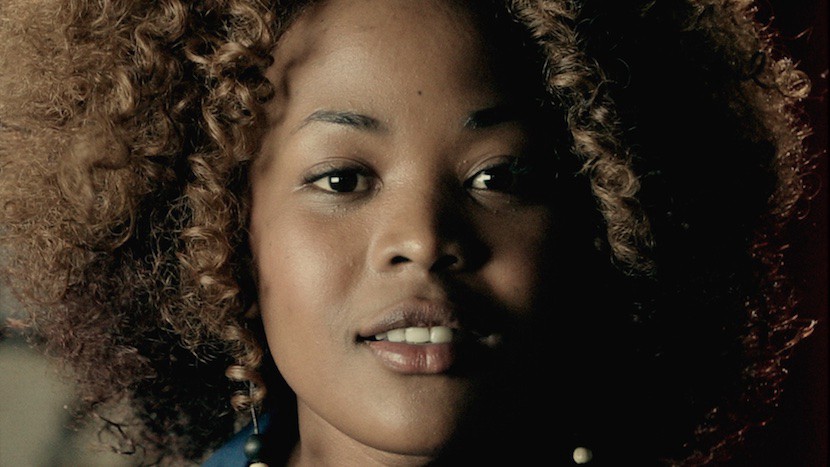Sara Blecher is a co-founder of CINGA, a South African-based production company that has made a number of award-winning features, documentaries and drama series. An honors graduate of NYU, Blecher has made some outstanding and noteworthy documentaries, including “Surfing Soweto” and “Kobus And Dumile,” for which she won CNN’s African journalist of the year award. Her first feature film, “Otelo Burning,” won over 17 international awards and was named by CNN as one of the top ten African films of the decade.
“Ayanda” will premiere at the 2015 BFI London Film Festival on October 10.
W&H: Please give us your description of the film playing.
SB: In a vibrant and diverse Johannesburg community, 21-year-old Afro-hipster Ayanda has a knack for taking neglected pieces of furniture and “bringing them back to love.” Eight years after her father’s death, she is determined to revive his prized garage, which is in deep debt and in danger of being sold. This film crackles with infectious energy and style, capturing a vividly contemporary view of a South Africa where cooperation trumps xenophobia. This one-of-a-kind film melds gorgeous still-frame montages inspired by the possibilities of a modern African aesthetic and documentary-like techniques to explore its core theme: How do we let go of the things and people we love?
W&H: What drew you to this story?
SB: Five years ago, I went to see “Juno” with my then-15-year-old daughter. I watched her transform while she watched that film. For the first time in her life, she was given an alternate role model — someone to emulate who was beyond any of the possibilities she had previously considered for herself. I wanted to make a film that would do the same thing for young African women. And this film does.
W&H: What was the biggest challenge in making the film?
SB: With a film like “Ayanda,” the lead really carries the film. She is practically in every scene. The biggest challenge by far was casting the lead, a young, black, fearless female actress brave enough to present a character that no one has ever seen before in a South African film.
Beyond that, for me, like many other female directors, the greatest challenge is to find work. Up until recently, I never directed anything that I didn’t create and produce so that I could direct — which is precisely how I overcame that challenge. If no one would hire me to direct, then I’d simply create projects so I could be the one to decide who would direct.
W&H: What do you want people to think about when they are leaving the theater?
SB: I want young women to think about different possibilities for their lives — actually, I want everyone to think about this. I also want people to consider the idea that the only way of moving forward with their lives is to revisit and confront their issues and their pasts.
W&H: What advice do you have for other female directors?
SB: Being an artist, it’s always tempting to measure success through other people’s eyes, be they critics, journalists or audiences. But as I have gotten older, I have come to realize what a terribly dangerous thing this can be. Art is incredibly subjective. What is great art to one person isn’t necessarily to another.
So now these days I measure the success of my work by the way I feel about a film before anyone else has seen it. I think I can now trust myself to know when the work is good and deep and interesting and when it isn’t.
W&H: What’s the biggest misconception about you and your work?
SB: My first film, “Otelo Burning,” was about young, black Zulu boys who learn to surf. The entire film was in Zulu.
My second film ,”Ayanda,” is about a young Sotho/Nigerian woman who learns to confront her past. This film is in Sotho/Zulu/Igbo, and my third film, “Dis Ek, Anna,” [which] will be released later this year, is an Afrikaans film about a young girl dealing with abuse.
Yet I am a white, middle-aged woman who only speaks English. I think people are surprised when they realize this.
W&H: How did you get your film funded? Share some insights into how you got the film made.
SB: “Ayanda” is the second film I have made. After the success of my first film, “Otelo Burning,” I received funding from the National Film and Video Foundation (NFVF) in South Africa to develop a slate of films. Initially, these films were to be fully funded by them, but later, when this was changed to only partial funding, I managed to persuade M-Net (a local cable network in South Africa) to come onboard. The film was funded by M-Net, a grant from the NFVF and the DTI (Department of Trade and Industry) rebate.
W&H: Name your favorite woman-directed film and why.
SB: “Salaam Bombay!” by Mira Nair. The realness and immediacy of this film opened up the possibilities of making films in a completely new way for me. I first watched this film at film school when Mira Nair came to present some of her documentaries, and both she and the film completely inspired me.







